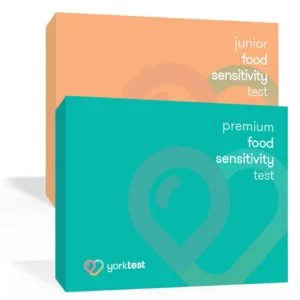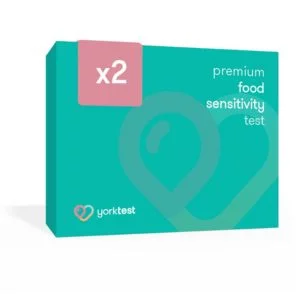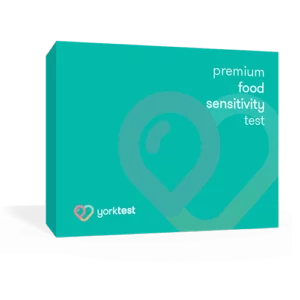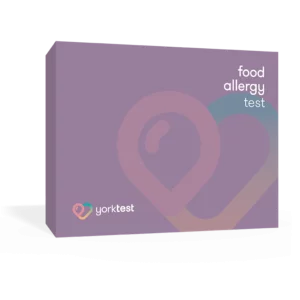If you have a nut sensitivity (defined by yorktest as a food-specific IgG reaction) your body will produce an inflammatory response brought on by specific proteins when you consume nuts.
It’s important to note that a nut sensitivity is very different to a nut allergy.
Nut allergy symptoms can appear immediately after consuming nut products, and manifest through a serious reaction, often requiring immediate medical attention.
In comparison, nut sensitivity symptoms and reactions may take longer to appear, and are usually less severe.
Nut Sensitivity Symptoms
As is the case with all food sensitivities, symptoms and their severity present differently in every person. At yorktest, we call this a unique ‘food fingerprint’.
Though everyone experiences different nut sensitivity symptoms, some of the more common ones include:
- Bloating
- Stomach cramps
- Wind
- Nausea
- Diarrhea
- Itchy skin
- Acne
- Eczema
- Fatigue
- Sinusitis
With a nut sensitivity, symptoms can take up to 72 hours to show. As a result, often it’s difficult to identify nuts as a trigger food, as many people assume their symptoms are brought on by something they’ve consumed more recently.*
*We have found that on average our customers experience symptoms reacting to between 2 and 8 foods. This can mean that cutting out just a single food may not completely eliminate your symptoms.
What To Do If You Think You Have A Nut Sensitivity
If you experience any of the symptoms above and suspect that consuming nuts may be causing them, you should start figuring out your dietary sensitivities as soon as possible. It’s a good idea to see a doctor to make sure you can rule out any other serious issues or underlying conditions – such as a nut allergy – before moving on.
After eliminating any other causes for the symptoms, taking a food sensitivity test is a logical next step to get to the bottom of your dietary issues. Taking the test will allow you to figure out precisely which nuts and other foods are causing your symptoms. With yorktest you also receive personal advice from one of our Nutritional Therapists, who will guide you through adjusting your diet going forward so you can live more healthy and comfortably.
Also important to note is that when treated correctly and managed efficiently, food sensitivities aren’t always permanent. So, it’s possible that in the future you may be able to eat nuts again without experiencing symptoms.
What To Look Out For
Unfortunately for those with a nut sensitivity or allergy, many products do contain nuts, either as flavoring, decoration or traces. It’s important to be aware of all the ingredients in your food and drinks to avoid triggers – in this case nuts and nut products.
Some of the most common ingredients to look out for and avoid if you have a nut sensitivity include:
- Legumes (peanuts)
- Beans, peas, alfalfa, lentils and soybeans
- Drupes (almonds and walnuts)
- Tree nuts (pistachios, hazelnuts, pecans, pine nuts, chestnuts, brazil nuts, cashews and macadamia nuts)
- Coconut
- Nut oils
In order to find out which particular nuts you’re sensitive to, you may need to take a food sensitivity test.
Natural Replacements For A Balanced Diet
Nuts are a healthy source of good fats in your diet. They also contain zinc and calcium, as well as healthy proteins. However, if you have a nut sensitivity, there are several natural options to replace nuts and supplement your diet.
Some nut alternatives include:
- Olives
- Sunflower seeds
- Pumpkin seeds
- Avocado
If you do discover that you have a sensitivity to nuts, don’t worry about having to alter your diet or muddle through alternatives. yorktest’s team of expert Nutritional Therapists will work with you to advise you on optimized dietary choices so you can live your best, healthiest life.
Information provided above regarding Food Sensitivity (defined by yorktest as a food specific IgG reaction) is intended to provide nutritional advice for dietary optimization. yorktest recommends that you discuss any medical concerns you have with a doctor before undertaking a yorktest program. For any further information, please get in touch with our friendly team.











